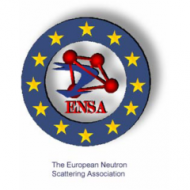30 April 2024: The ENSA board expresses a warm welcome to Finland as a new member of the European neutron scientist community! Finland will be represented by Paavo Penttilä from the Department of Bioproducts and Biosystems, Aalto University, Espoo, Finland. The decision was taken during the second ENSA in-person meeting after the Covid break, which …
Category Archives: News
Astrid Schneidewind elected as new chair of ENSA
At the ENSA meeting held on November 15th 2023 at PSI in Switzerland, Dr. Astrid Schneidewind was elected chair of ENSA. Dr Schneidewind is instrument scientist of PANDA, a cold three axis spectrometer located at MLZ and operated by FZ Jülich. She takes over the role of ENSA chair after Prof Henrik Rønnow. The ENSA …
Continue reading “Astrid Schneidewind elected as new chair of ENSA”
ENSA-ESUO Joint Meeting held at PSI
On 13-14 November 2023, ENSA and ESUO (European Synchrotron User Organization) held a joint meeting in conjunction with a meeting on European data policy organized by the DAPHNE4NFDI (DAta from PHoton and Neutron Experiments) project. DAPHNE4NFDI, a German initiative, works on promoting collaborations between users and facilities of the European Photon and Neutron community to …
Stefano Deledda elected as new vice-chair
At the ENSA meeting held during the ECNS2023, Dr. Stefano Deledda was elected ENSA vice-chair. Dr Stefano Deledda is a senior scientist at the Institute for Energy Technology (IFE) in Norway and takes over the vice-chair role after Dr. Lambert van Eijck. The ENSA board would like to thank Lambert for his invaluable contribution as …
Continue reading “Stefano Deledda elected as new vice-chair”
Welcome to Portugal
The ENSA board expresses a warm welcome to Portugal as a new member of the European neutron scientists community! Portugal will be represented by the president of the Portugese Groups of Neutron and Muon Users NeMPo, Maria Paula Marques.
prof. Ferenc Mezei wins Gothenburg Lise Meitner Award
We would like to congratulate our much appreciated colleague and distinguished scientist Prof. Ference Mezei as a laureate of the Gothenburg Lise Meitner Awards 2021 Citing the website of the Award: Ferenc Mezei will receive the award “For the inventions of the neutron spin echo method and the super mirror, which have significantly advanced neutron …
Continue reading “prof. Ferenc Mezei wins Gothenburg Lise Meitner Award”
Hello Neutron Scatterers!
Welcome to the new website of the European Neutron Scattering Association (ENSA). We, ENSA, represent the scientists that use large-scale research infrastructures that operate a neutron source, like research reactors and accelerator-based spallation sources. Half of the worlds mass actually consists of neutrons. Half of you consists of neutrons. Neutrons bind together the protons in …
